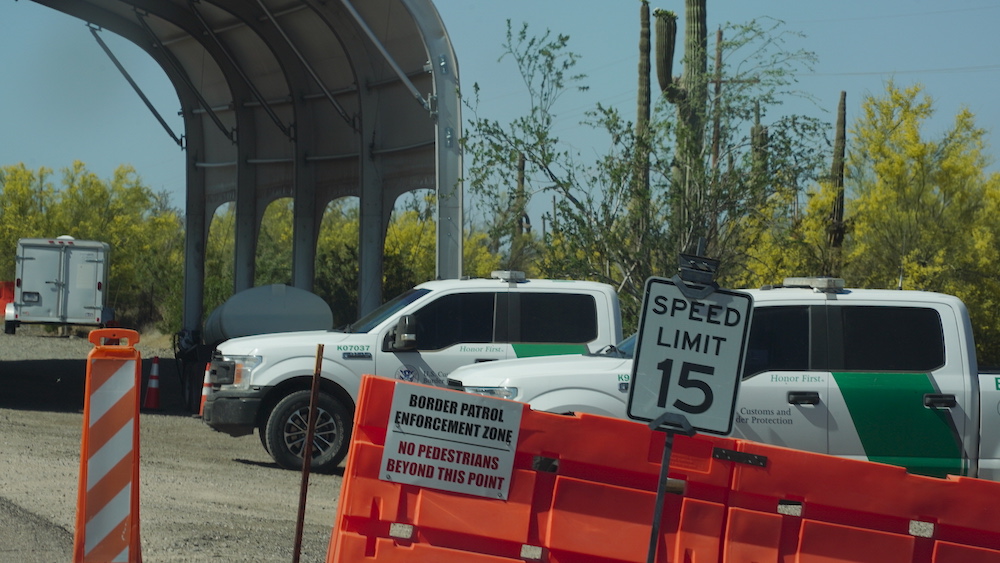
- Details
- By Darren Thompson
AJO, Ariz.—The FBI and the Tohono O'odham Police are investigating the fatal shooting of a Tohono O’odham citizen by U.S. Border Patrol agents last Thursday.
The citizen, identified by the Tribe as Raymond Mattia, had called to report people trespassing on his property. Mattia was reportedly shot at his home at around 10 p.m. Thursday on the reservation near the U.S.-Mexico border in southern Arizona.
Agents from the Ajo Station were involved in the shooting, according to a spokesperson for Customs and Border Protection (CBP), which did not share the identity of the deceased. The CPB's Office of Personal Reponsibility is also investigating the shooting.
“Nation member Raymond Mattia lost his life in the incident,” Tohono O’odham Nation Chairman Ned Norris, Jr. said in a statement. “Our hearts go out to his family and all those impacted during this difficult time. As the investigation proceeds, the Nation expects full consideration of all related facts of the incident and an appropriate and expeditious response from relevant public safety agencies.”
Because the incident occurred on Indian lands in Arizona, which is a non-Public Law 280 state, the Federal Bureau of Investigation (FBI) has jurisdiction to investigate officer-involved shootings, and other major crimes on Indian lands.
The Nation identified that the fatal shooting incident happened in Menagers Dam Village, which is only a few miles from the border. The shooting occurred roughly a week after the expiration of Title 42, a policy of both the Trump and Biden administrations designed to keep people from migrating into the country during the COVID-19 pandemic. Title 42 stems from a public health law that became law in 1944, which hopes to limit migration in the name of protecting public health.
When the measure expired at midnight on May 11, thousands of migrants, many from central and south America, attempted to cross the southern border.
Upon entering the Tohono O’odham Nation, in any of the reservation’s main highways, there is a visible U.S. Border Patrol command station.
Visitors can be stopped for any, or no reason on the reservation if border patrol agents suspect anything. In other words, it’s normal to see a U.S. Border Patrol agent or CBP vehicle on the Tohono O’odham Nation, which is the second-largest Indian reservation in the country of 3,000,000 million acres.
Officials including the U.S. Border Patrol, the FBI, and Tohono O’odham Nation said they will not be releasing any additional information pending an active investigation.
More Stories Like This
Native News Weekly (August 25, 2024): D.C. BriefsNative News Weekly (March 1, 2026): D.C. Briefs
Scope Narrowed, Report Withheld: Questions Mount Over Michigan Boarding School Study
Zuni Youth Enrichment Project Announces Family Engagement Night and Spring Break Youth Programming
Next on Native Bidaské: Leonard Peltier Reflects on His First Year After Prison
Help us defend tribal sovereignty.
At Native News Online, our mission is rooted in telling the stories that strengthen sovereignty and uplift Indigenous voices — not just at year’s end, but every single day.
Because of your generosity last year, we were able to keep our reporters on the ground in tribal communities, at national gatherings and in the halls of Congress — covering the issues that matter most to Indian Country: sovereignty, culture, education, health and economic opportunity.
That support sustained us through a tough year in 2025. Now, as we look to the year ahead, we need your help right now to ensure warrior journalism remains strong — reporting that defends tribal sovereignty, amplifies Native truth, and holds power accountable.
 The stakes couldn't be higher. Your support keeps Native voices heard, Native stories told and Native sovereignty defended.
The stakes couldn't be higher. Your support keeps Native voices heard, Native stories told and Native sovereignty defended.
Stand with Warrior Journalism today.
Levi Rickert (Potawatomi), Editor & Publisher

